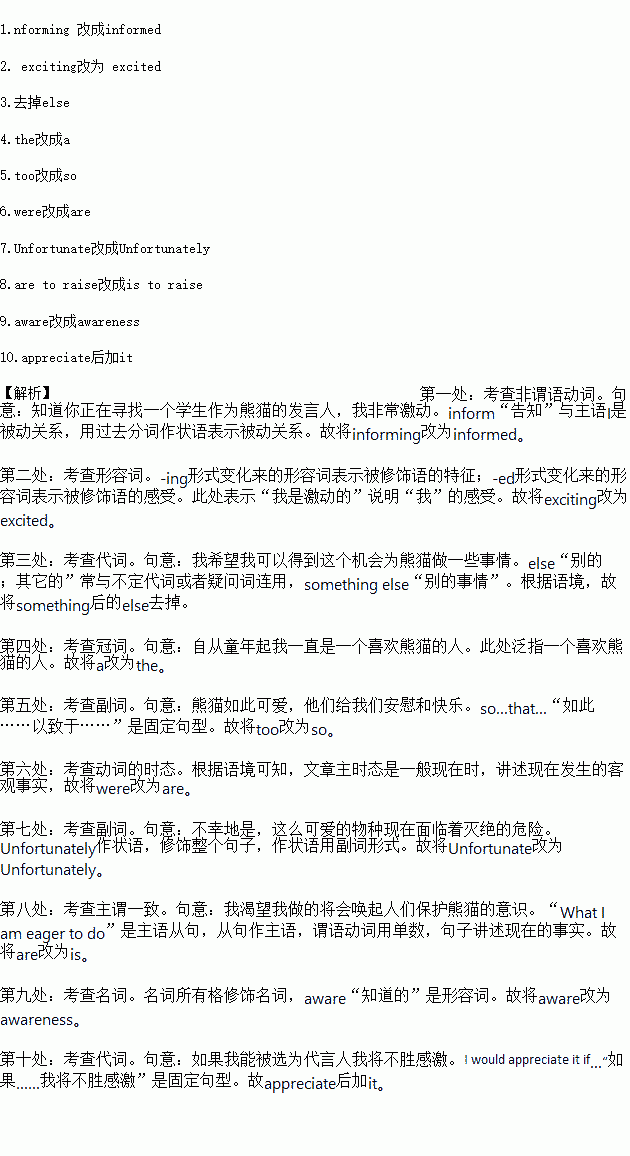题目内容
假定英语课上老师要求同桌之间交换修改作文,请你修改你同桌写的以下作文。文中共有10处语言错误,每句中最多有两处。错误涉及一个单词的增加、删除或修改。
增加:在缺词处加一个漏词符号(/\),并在其下面写出该加的词。
删除:把多余的词用斜线(\)划掉。
修改:在错的词下划一横线,并在该词下面写出修改后的词。
注意:1、每处错误及其修改均仅限一词;
2、只允许修改10处,多者(从第11处起)不计分。
I am a student from No 1 Middle School. Informing that you are looking for a student to serve as a spokesman for pandas, I am very exciting. I hope that I can get the opportunity to do something else for pandas. I have been the panda lover since my childhood. Pandas are too lovely that they bring us comfort and pleasure. They were referred to as a symbol of our country. Unfortunate, such a lovely species is now faced with the danger of becoming extinct. What I am eager to do are to raise people`s aware of protecting pandas. I would appreciate if I could be chosen as a spokesman.


 uary 30 --- a day that doesn’t exist!
uary 30 --- a day that doesn’t exist! experience, going to office hours regularly, emailing questions that may be beyond the scope of class just out of your own curiosity, and reading ahead of time so you can ask good relevant questions are the best ways to give a professor a good impression. Where I’ve sat in the classroom hasn’t noticeably affected a professor’s opinion of me in the slightest.
experience, going to office hours regularly, emailing questions that may be beyond the scope of class just out of your own curiosity, and reading ahead of time so you can ask good relevant questions are the best ways to give a professor a good impression. Where I’ve sat in the classroom hasn’t noticeably affected a professor’s opinion of me in the slightest.